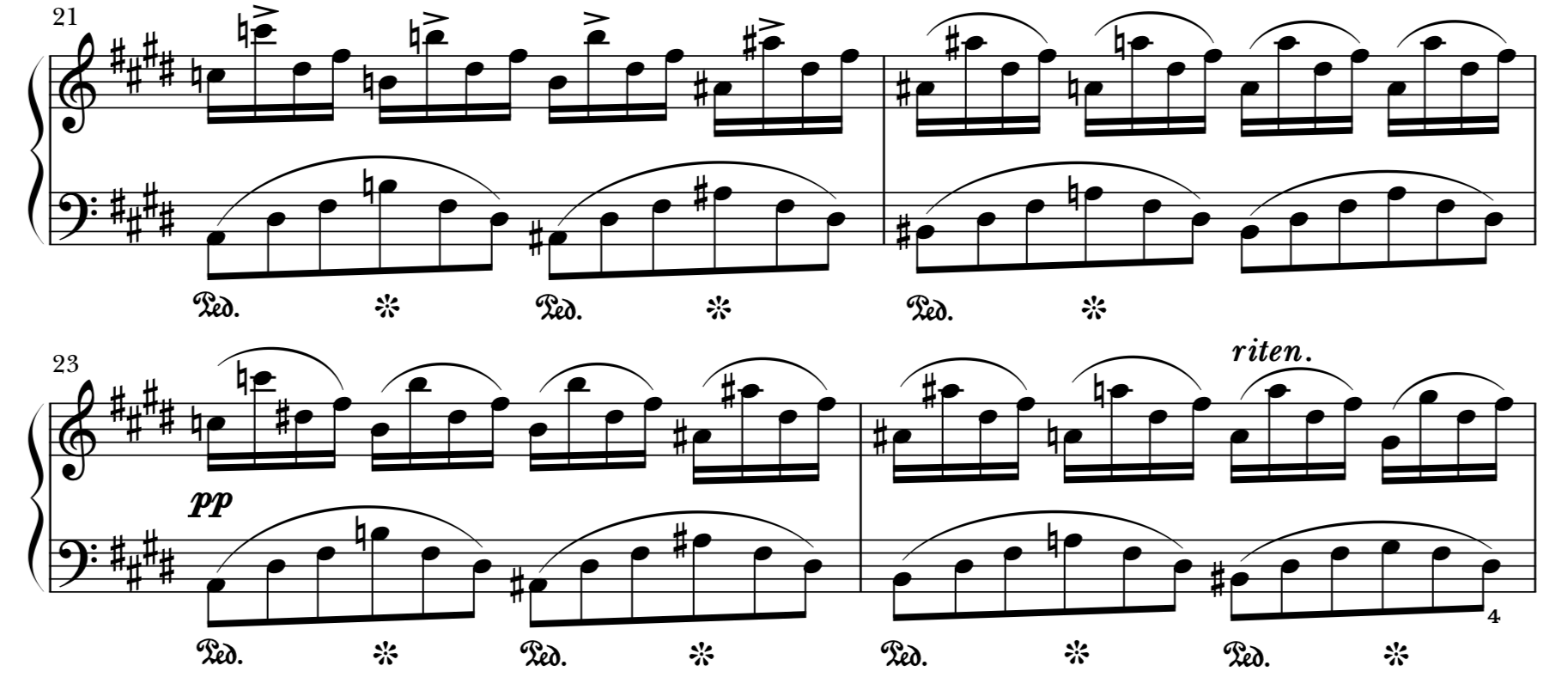I’m new to music theory and the definition of key I’ve learned seems to contradict established fact. I’ve been told that the tonic of a piece is the key where the melody comes to rest, where it feels resolved. And then from there the notes used determine the mode. But, for example, in Chopin’s Fantaisie Impromptu, isn’t the tonic of the first section G#, not C#? Especially in the main melody, where it clearly resolves (and begins!) on G#:
And, given that the piece uses the notes of the E major/C# minor scale, wouldn’t this make the key of the piece G# Phrygian, not C# minor? If the justification for listing the key as C# minor is that the harmony/bass uses C# minor chords, can it be said that the melody is in G# Phrygian while the harmony is in C# minor? Is this a coherent statement?
EDIT: This is the passage that led me to believe G# was the tonic:
I understand now that the harmony is more important for establishing the tonic than the melody, but if we just consider the melody in isolation here, can it be said to have a tonic of G#? If not, why? It starts and resolves on a G# and it certainly does not resolve on C# the one time it encounters that note. So what is the justification for considering C# the tonic if it doesn’t act as such? Isn’t this being biased towards traditional tonality over a modal explanation? This is the problem I have here.



